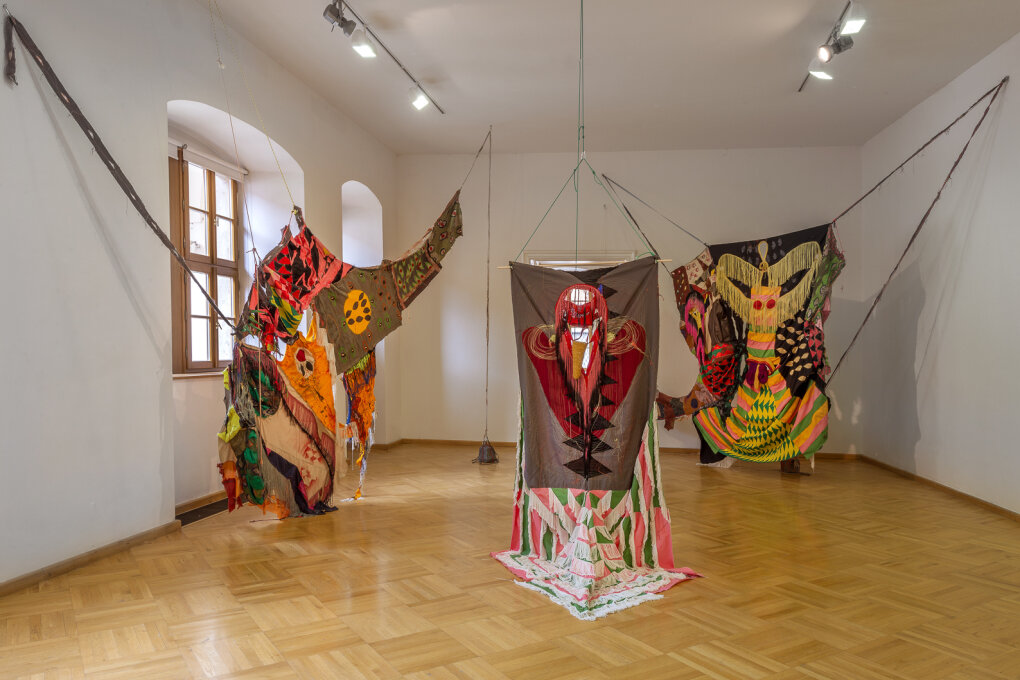Drop Dead Funny / Contemporary art from Israel
11. 9. 2019 – 3. 11. 2019
House of the Lords of Kunštát
Curator
Sally Haftel Naveh

Artists: Naama Arad, Yaron Attar, Gili Avissar, Merav Kamel & Halil Balabin, Yael Frank, Zohar Gotesman, Erez Israeli, Elad Larom, Roy Menachem Markovich, Daniella Meroz, Karam Natour, Dov Or Ner, Eran Nave, Gil Yefman, Yaara Zach
Ever since the avant-garde movements of the early twentieth century, humor and parody served as a central tool for subverting the accepted norms of society. As seen in Dada especially, but also in Surrealism, Dada’s less politically-minded offshoot, manifestations of irony, wit and nonsense abound – a response to a bourgeois social order that, following the First World War, deceived a whole generation. Rife with visual and textual gags, double meanings and pop-cultural references, the artistic legacy of these early avant-garde movements persisted into the Pop Art of the 1960s, making a strong reappearance in the postmodern art of the 1980s and 1990s – this time more daring, distorted and grotesque than ever. To name just one prominent example, the Swiss duo Fischli and Weiss, active since the late seventies, made liberal use of comical gestures which, rather than release tension, push absurdity to new heights.
Exploring such tendencies in contemporary art from Israel, Drop Dead Funny brings works in various media by 16 artists who apply humoristic gestures as a way to cast a fresh look on day-to-day life and a political reality in a country rife with tensions and conflicts. A highly effective tool, humor allows them to tackle the tensions around race, gender, identity and social conventions as these intermingle with the fears and anxieties of modern life. In turning to slapstick, practical jokes, black humor, parody and the grotesque, they highlight the gap between lived experience and media representations, pointing to unresolved tensions and instilling in a sense of unease that lingers far beyond the punch line.
In a sense, resorting to humor can be seen as coping mechanism in a charge political climate, as an outlet for tension release in a public discourse governed by political correctness on the one hand and worn-out truisms and platitudes on the other – both signaling a form of censorship, weather exterior or self-imposed. As room for defiance and provocation grows increasingly tight, humor remains an effective way of puncturing the accepted image of reality, as a way of exposing it, instead, in its inherent absurdity. Taking aim at such representations, the artists in the show manage to shake off the self-complacency of the here-and-now, but also that of national histories, real and imagined, as projected unto the present.
In terms of the techniques used, the modes of representation and the genres they take inspiration from, the works in the show present a strong tendency toward the figurative and dramatized reenactment, with characters or the anthropomorphism of inanimate objects. They opt for media associated with low-tech devices and laborious handiwork, such as stop-motion animation, knitting and sewing. The style and visual signifiers draw on graphic design, illustration and cinematic genres in a mix of high and low cultural signifiers that, likewise drawing on history, literature and philosophy, create cultural hybrids meant to put humor into action as a subversive tool that dismantles hierarchies.
In poking fun at them, humor has the potential to expose the powerful mechanisms that underpin the constructs and beliefs that we take for granted. Humor’s cathartic release does away with the propaganda aspect of ideological utterances, foregrounding issues that are unspoken and protected under a seal of authority and sanctity. Once divested of their vested authority, we can begin to think of alternative to the widely-held notions and ideas that govern our current socio-economic situation.
Sally Haftel Naveh, curator
Photo: Michaela Dvořáková
House of the Lords of Kunštát
Dominikánská 9
Brno
Exhibition Opening: 10. 9. 2019
Partners
Dům umění města Brna
Ministerstvo kultury
Statutární město Brno
Art+antiques
A2
Artmap.cz
Artalk.cz
Kam v Brně
Artikl








Sponsors












